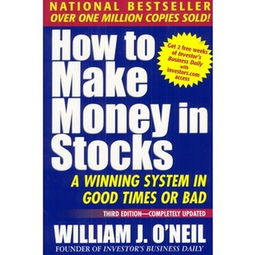How to Make Change with Money: A Comprehensive Guide
Managing your finances effectively is crucial in today’s fast-paced world. Whether you’re looking to save for a big purchase, invest for the future, or simply make the most of your income, understanding how to make change with money is essential. This guide will explore various strategies and tips to help you make the most of your financial resources.
Understanding Your Financial Situation

Before you can make any meaningful changes with your money, it’s important to have a clear understanding of your current financial situation. This includes assessing your income, expenses, debts, and savings. Here’s how you can get started:
-
Track your income: Keep a record of all your sources of income, including your salary, side hustles, and any other forms of earnings.
-
Categorize your expenses: Break down your expenses into categories such as housing, transportation, food, and entertainment. This will help you identify areas where you can cut back.
-
Assess your debts: Make a list of all your debts, including credit card balances, loans, and any other outstanding amounts. Understand the interest rates and payment terms for each debt.
-
Review your savings: Determine how much you currently have saved and your savings goals. This will help you understand how much you can allocate towards making changes with your money.
Creating a Budget

A budget is a crucial tool for managing your finances. It helps you allocate your income towards your needs, wants, and savings. Here’s how to create a budget:
-
Set your financial goals: Determine what you want to achieve with your money, whether it’s paying off debt, saving for a home, or building an emergency fund.
-
Allocate funds to your needs: Prioritize your essential expenses, such as rent, utilities, groceries, and transportation.
-
Set aside funds for your wants: Allocate a portion of your income towards non-essential expenses, such as dining out, entertainment, and shopping.
-
Save for the future: Dedicate a portion of your income to your savings goals, including an emergency fund, retirement, and any other long-term goals.
Reducing Expenses

One of the most effective ways to make change with your money is by reducing your expenses. Here are some strategies to help you cut costs:
-
Review your subscriptions: Cancel any subscriptions or memberships that you no longer use or need.
-
Shop smart: Use coupons, take advantage of sales, and compare prices before making purchases.
-
Reduce utility bills: Unplug electronics when not in use, use energy-efficient appliances, and adjust your thermostat to save on energy costs.
-
Limit dining out: Cook at home more often to save on restaurant bills.
-
Use public transportation: Save on gas and parking costs by using public transportation or carpooling.
Increasing Your Income
In addition to reducing expenses, increasing your income can also help you make more significant changes with your money. Here are some ways to boost your earnings:
-
Seek a raise: Negotiate a salary increase with your employer or explore opportunities for advancement within your current job.
-
Pursue a higher-paying job: Consider switching careers or industries to find a job that offers better compensation.
-
Start a side hustle: Generate additional income by starting a part-time business, freelancing, or taking on a second job.
-
Invest in yourself: Invest in your education and skills to improve your job prospects and earning potential.
Investing Your Money
Investing your money can help you grow your wealth over time. Here are some investment options to consider:
-
Stock market: Invest in individual stocks or mutual funds to potentially earn higher returns.
-
Bonds: Invest in bonds to earn fixed interest payments over a set period.
-
Real estate: Invest in real estate properties to generate rental income or capital gains.



